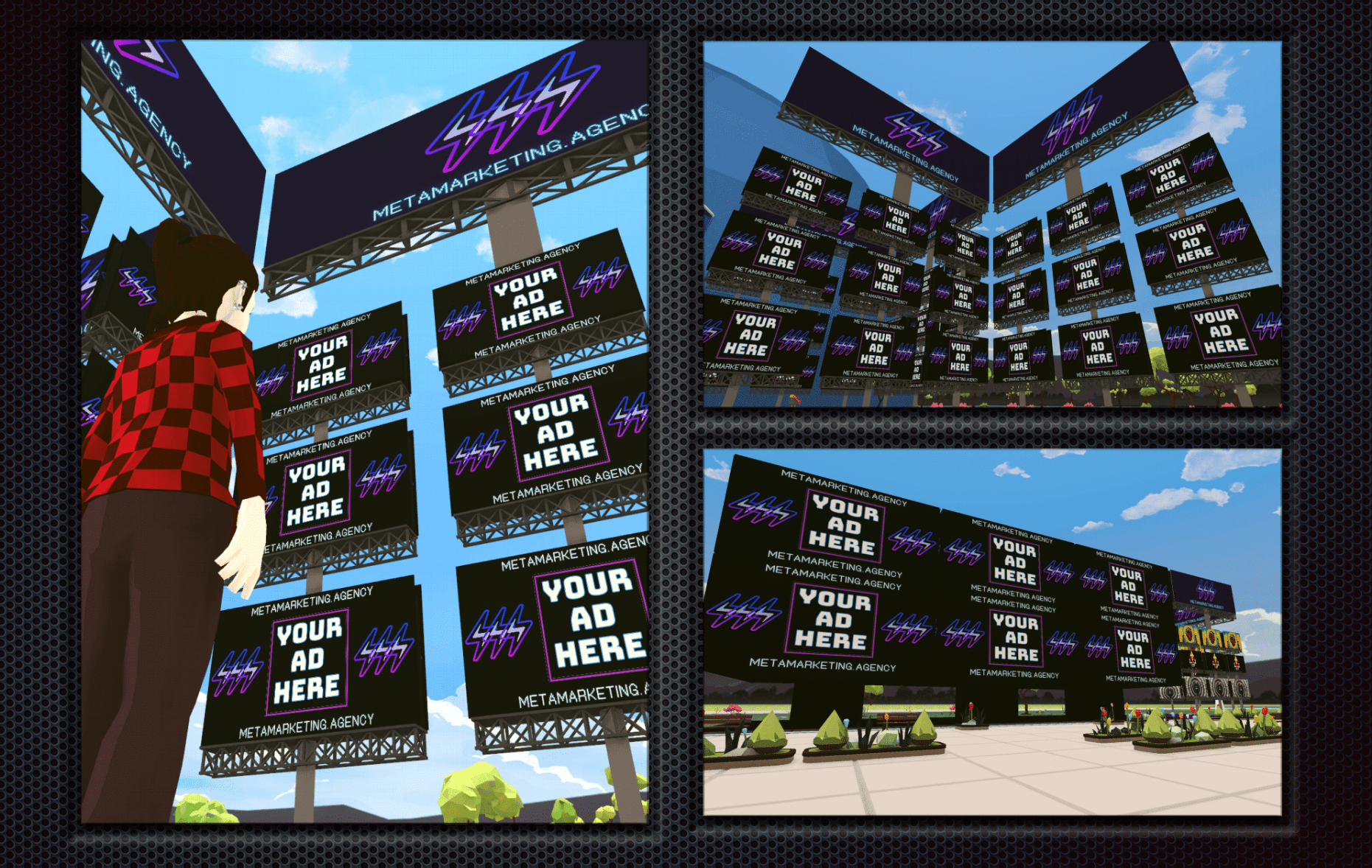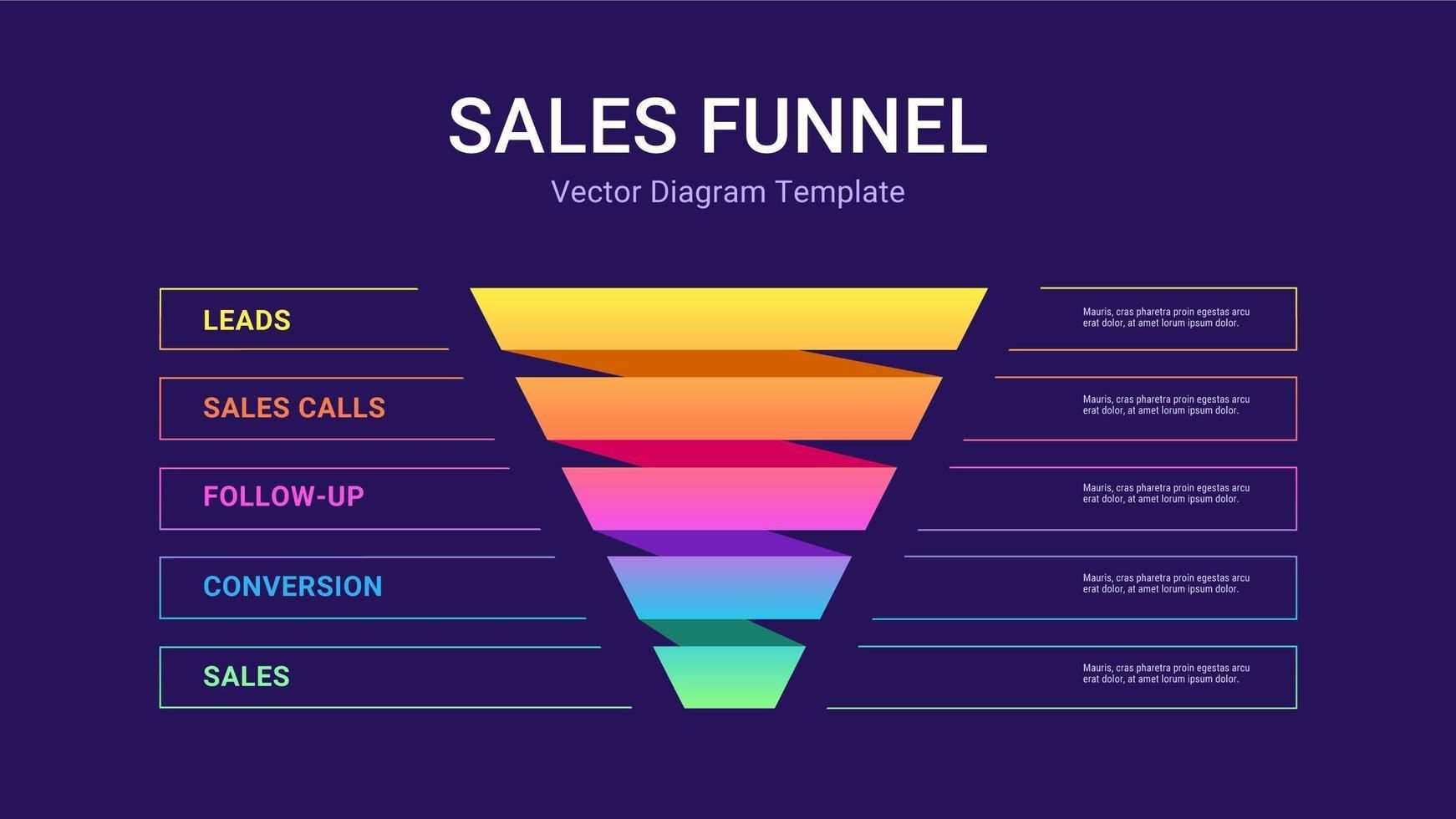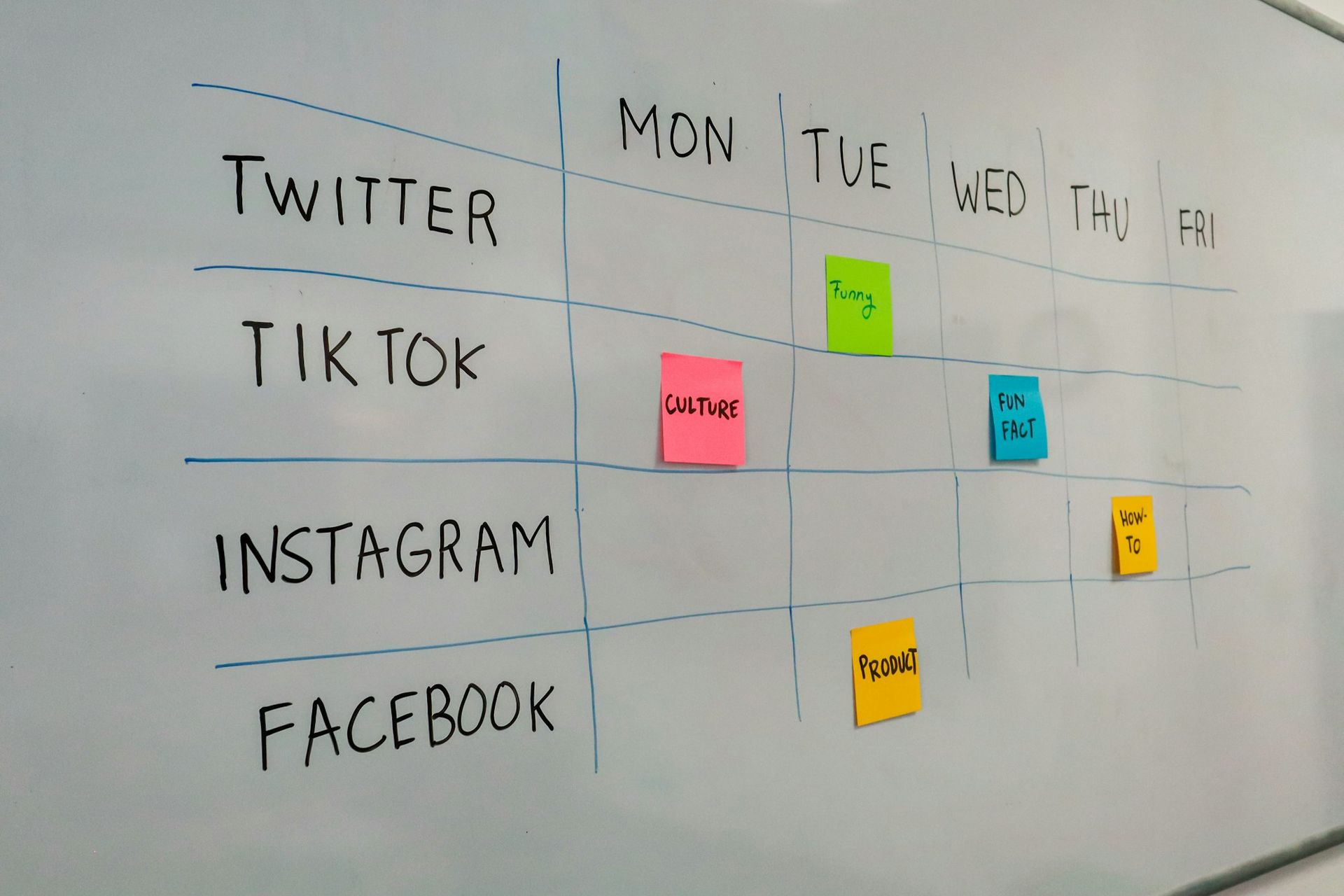How Brands Can Enter The Metaverse To Boost Awareness: A Comprehensive Guide
How Brands Are Entering The Metaverse With Quantifiable Results

In a world where the virtual and physical realms are merging, the concept of the "metaverse" is becoming increasingly relevant. The metaverse is a comprehensive, interconnected virtual universe where people can interact and explore with no physical boundaries. It has the potential to become a powerful tool for brands, providing a unique way to reach and engage customers in ways never before possible.
This comprehensive guide will explore how brands can leverage the metaverse to boost brand awareness, reach new customers, and enhance existing customer relationships. It will cover the basics of the metaverse, explain why it is an important marketing tool, and discuss the various strategies brands can use to maximize their return on investment.
Table of Contents:
- Understanding the Benefits of Leveraging the Metaverse for Brand Awareness
- Analyzing the Potential ROI of Using the Metaverse
- Creating a Strategic Plan for Leveraging the Metaverse
- Identifying the Best Metaverse Platforms to Leverage
- Establishing Brand Guidelines for the Metaverse
- Implementing a Metaverse Advertising Campaign
- Analyzing and Tracking the Success of the Metaverse Campaign
- Conclusion: The Power of the Metaverse for Brand Awareness
Understanding the Benefits of Leveraging the Metaverse for Brand Awareness
The metaverse has the potential to be a powerful marketing tool for brands. The following benefits of leveraging the metaverse for brand awareness are just a few reasons why:
1. Reach Global Audiences:
The metaverse allows brands to reach global audiences without physical boundaries. This means that brands can target customers in any country, eliminating the need for expensive international marketing campaigns.
2. Create Unique Experiences:
The metaverse offers unique opportunities for brands to create immersive experiences that engage customers on a deeper level. These experiences can range from virtual product launches, interactive showrooms, and even virtual events such as fashion shows.
3. Generate Brand Interest:
Leveraging the metaverse for brand awareness can help generate interest in a brand’s products and services among potential customers who may not have been aware of them before with immersive branded experiences.
4. Increase Brand Visibility:
By leveraging the metaverse, brands can increase their visibility in the virtual world and gain more exposure to potential customers who may not have been exposed to them before.
5. Enhance Customer Relationships:
The metaverse provides an opportunity for brands to build relationships with their existing customers in the virtual world in the early stages.
Analyzing the Potential ROI of Using the Metaverse
The potential ROI of leveraging the metaverse for brand awareness is significant, and will pay off significantly in the mid-long term as of 2022. The following are a few key areas where brands are likely to see an increase in ROI by creating a presence in the metaverse:
1. Increased Visibility: Leveraging the metaverse can help increase brand visibility, which in turn can lead to increased sales and revenue in the physical world. from the digital worlds.
2. Enhanced Customer Relationships: By creating a presence in the metaverse, brands can build stronger relationships with their customers and create a more personal connection with them. This can result in higher customer loyalty and retention rates.
3. Improved Brand Recognition: By being active in the metaverse, brands will be able to reach a wider audience and gain recognition from potential customers who may not have heard of them before. This could lead to increased brand recognition and more sales opportunities.
4. Reduced Marketing Costs:
With the growing popularity of virtual events, brands have an opportunity to reduce their marketing costs by hosting virtual events instead of physical ones. This could lead to cost savings for the brand in terms of both time and money spent on marketing activities such as event planning, staffing, etc.
The bottom line is that the metaverse is a unique opportunity for brands to explore new marketing strategies. It is a virtual universe that is not restrained by physical barriers and it will only continue to grow as the physical and virtual realms continue to merge.
This can provide brands with an opportunity to increase their visibility, reach new audiences, and establish a stronger relationship with their current customers.

Creating a Strategic Plan for Leveraging the Metaverse
While the benefits of leveraging the metaverse are clear, it is important to create a strategic plan to ensure the implementation of a successful campaign.
The following are a few key areas to consider when creating a strategic plan for leveraging the metaverse:
1. Identifying the target audience: It is important to identify the target audience for the virtual event or campaign. This will help ensure that the right message is being sent to the right people at the right time.
2. Developing an effective strategy:
Once the target audience has been identified, it is important to develop a comprehensive strategy that outlines how to reach and engage with them. This could include creating engaging content, leveraging social media, and utilizing influencers or other avenues of promotion.
3. Establishing a budget:
A budget should be established to ensure that all costs associated with the virtual event or campaign are accounted for and managed appropriately.
4. Measuring success: Lastly, it is important to measure success in order to understand how successful a virtual event or campaign was in terms of reaching its goals and objectives. This could be done through surveys, analytics data, etc., depending on what metrics are deemed most relevant for measuring success.
The bottom line is that brands must have a clear goal, a strong understanding of the virtual universe they are entering, and a comprehensive plan for achieving their desired results.
Without this, it will be difficult to generate a positive ROI and a successful campaign.
While the benefits of leveraging the metaverse are clear, it is important to create a strategic plan to ensure the implementation of a successful campaign.
The following are a few key areas to consider when creating a strategic plan for leveraging the metaverse:
1. Identifying the target audience: It is important to identify the target audience for the virtual event or campaign. This will help ensure that the right message is being sent to the right people at the right time.
2. Developing an effective strategy: Once the target audience has been identified, it is important to develop a comprehensive strategy that outlines how to reach and engage with them. This could include creating engaging content, leveraging social media, and utilizing influencers or other avenues of promotion.
3. Establishing a budget:
A budget should be established to ensure that all costs associated with the virtual event or campaign are accounted for and managed appropriately.
4. Measuring success: Lastly, it is important to measure success in order to understand how successful a virtual event or campaign was in terms of reaching its goals and objectives. This could be done through surveys, analytics data, etc., depending on what metrics are deemed most relevant for measuring success.
The bottom line is that brands must have a clear goal, a strong understanding of the virtual universe they are entering, and a comprehensive plan for achieving their desired results.
Without this, it will be difficult to generate a positive ROI and a successful campaign.
Identifying the Best Metaverse Platforms to Leverage
As the metaverse continues to grow, brands are likely to see the greatest return on investment by leveraging the most popular platforms.
While a comprehensive list of the most popular platforms is difficult to pinpoint, a few clear leaders have emerged:
Roblox - Roblox is a popular platform for gaming, entertainment, and social interaction. It has been around since 2006 and continues to be a leader in the metaverse space.
Minecraft
- Minecraft is one of the most popular video games of all time, and it’s also a major player in the metaverse. It’s known for its creative potential and has spawned a thriving ecosystem of user-created content.
Fortnite
- Fortnite is an immensely popular battle royale game that has become a cultural phenomenon. It offers players the chance to explore a virtual world and create their own stories within it.
Decentraland
- Decentraland is an open-source virtual world built on Ethereum blockchain technology. It allows users to purchase land parcels, build structures, explore 3D environments, and more. It is mainly played through a desktop, however in the future it has plans to allow for virtual reality gameplay.
These platforms continue to see an increase in traffic and consumers, making them ideal options for brands looking to maximize visibility in the metaverse.
Establishing Brand Guidelines for the Metaverse
When leveraging the metaverse for brand awareness, it is important to create brand guidelines that define the standards for participation. A few key areas to include in brand guidelines for the metaverse include:
Avatar Design
- Guidelines for avatar design should outline the acceptable styles, colors, and aesthetics of the brand’s avatars.
Content Strategy
- A content strategy should specify the type of content and messaging that will be used by the brand in the metaverse.
Digital Assets - Brands should also provide digital assets such as logos, images, and videos to ensure consistency across all platforms.
Community Management - Brands should also define standards for how they will interact with and respond to users in the metaverse.
By establishing brand guidelines for the metaverse, brands can ensure that their presence is consistent across all platforms. These guidelines will help brands create a clear and consistent experience for consumers, which will be especially helpful once the metaverse expands and becomes more populated.
Implementing a Metaverse Advertising Campaign
If a brand decides to implement a metaverse advertising campaign, the following are a few key mediums to consider:
- Metaverse Billboards
- Virtual Wearables in the Metaverse
- Events in the Metaverse
- Gamification
- Immersive Experiences
- Unlocking Real Life experiences by interacting with the metaverse experience
If you are looking to explore these mediums of marketing and advertising in the metaverse, feel free to contact us to get started with your free consultation.
Analyzing and Tracking the Success of the Metaverse Campaign
To analyze and track the success of a metaverse campaign, brands must first create measurable goals that include the following:
- Reach: How many people were exposed to the campaign?
- Engagement: How many people interacted with the campaign?
- Conversion: How many people completed a desired action as a result of the campaign?
- ROI: What was the return on investment for the campaign?
Once these goals are established, brands can then use analytics tools to measure performance and track progress toward achieving those goals. This data can help brands understand what is working and what isn’t, allowing them to make adjustments and optimize their campaigns for maximum success.
These goals will help brands track the success of their campaign by providing an objective and quantifiable way to measure the campaign's progress. To track and analyze the success of a metaverse campaign, brands should utilize the following:
- Social media analytics: Track engagement on each platform, such as likes, comments, shares, and views.
- Website analytics: Monitor website traffic and conversions from the campaign.
- Conversion tracking: Set up conversion tracking to measure how many people took an action after seeing the campaign.
- Surveys: Ask customers to provide feedback on their experience with the campaign, which can help brands improve future efforts.
- A/B testing: Run experiments to see which version of a campaign performs better and make changes based on the results.
Brands should also consider using a dashboard to track the progress of the campaign in a centralized and efficient way. Meta Marketing Agency has the dashboards and analytics reporting that you are looking for.
If you are a company looking to enter the metaverse with measurable marketing results, book a complimentary consultation with our team today!
Conclusion: The Power of the Metaverse for Brand Awareness
The future of the metaverse is unclear, but it will likely become a powerful tool for brands looking to boost their visibility, reach new customers, and enhance relationships with their current customers.
With the right approach, brands can harness the power of the metaverse to increase their brand awareness, promote their products, and establish their presence in the virtual world. By setting up measurable goals, tracking progress with a dashboard, and utilizing the power of the metaverse, brands can ensure that their campaigns are successful.
We are a specialized Metaverse Agency that will help you effectively enter the metaverse.
Contact us today for your free consultation!
Recapping The Article
- Understanding the Benefits of Leveraging the Metaverse for Brand Awareness
- We dove into the leading benefits of leveraging the metaverse for brand awareness and reach.
- Analyzing the Potential ROI of Using the Metaverse
- We analyzed the potential for getting a return on investment from a metaverse marketing campaign
- Creating a Strategic Plan for Leveraging the Metaverse
- We outlined ways that you can create a strategic plan for brands entering the metaverse.
- Identifying the Best Metaverse Platforms to Leverage
- By identifying the leading virtual world platforms, you can do research on making an informed decision of where to focus your initial efforts.
- Establishing Brand Guidelines for the Metaverse
- Determining what are suitable brand guidelines for entering the virtual world.
- Implementing a Metaverse Advertising Campaign
- How to take the first steps in implementing a metaverse advertising campaign.
- Analyzing and Tracking the Success of the Metaverse Campaign
- What key metrics, KPIs and tools will you use in order to track the success of the metaverse campaign.
- Conclusion: The Power of the Metaverse for Brand Awareness
- Recapping the final statements about the power of the metaverse as an extension of your brand from the physical world to the virtual world.





















